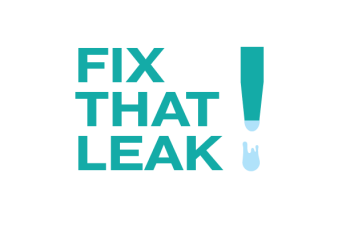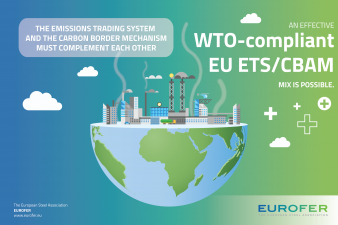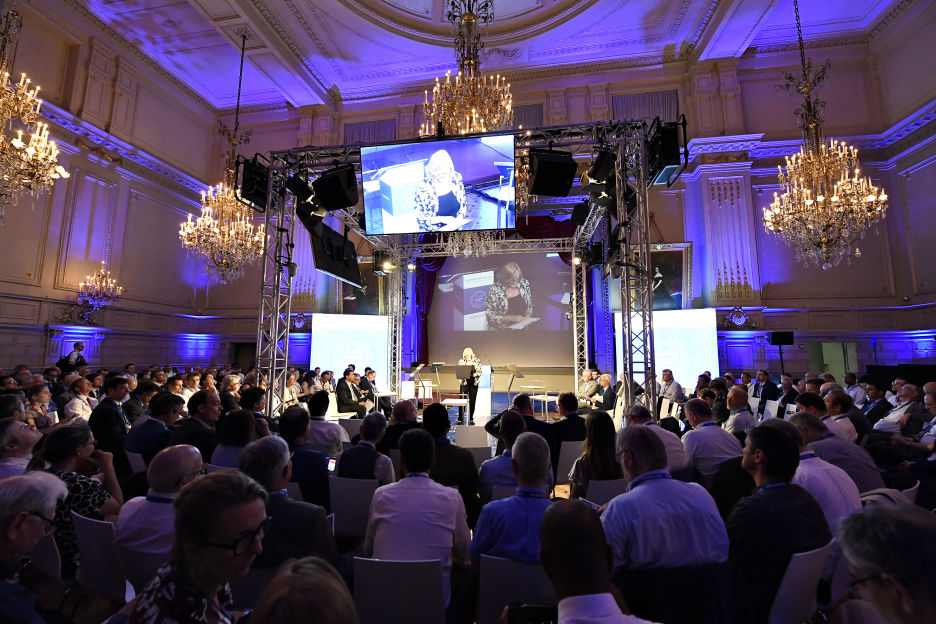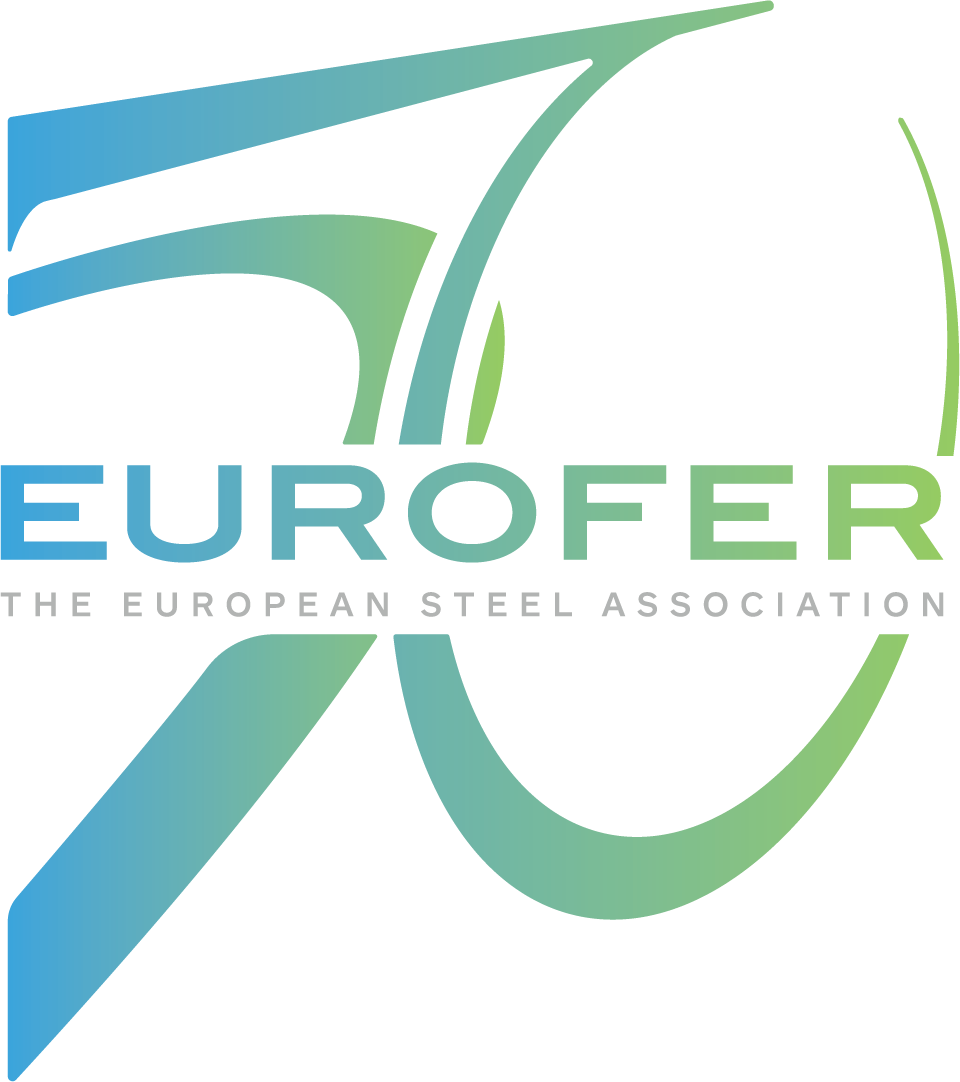The introduction of the Carbon Border Adjustment Mechanism (CBAM) and the revision of the EU Emissions Trading System (EU ETS) are the centrepieces of the Fit for 55 package, presented by the European Commission in July 2021. These two legislative files, although formally independent, are closely intertwined as they both aim at the decarbonisation of the European industry, including steel. Now under discussion among the EU co-legislators at both the European Parliament and the Council, their current provisions need to be assessed as a whole, as will be their impact on the sector.
This page gathers documents, analysis, assessments and communication tools from the steel industry’s perspective to help get the full picture on the main issues raised by the CBAM and the ETS proposals. In particular, how to reach the ambitious EU climate goals in the most cost-efficient way; the conditions and investment required for making green steel sustainable and competitive; the WTO compliance of the carbon border tax and the free allocation of emissions; as well as how to enable the EU to retain leadership on climate and innovation whilst avoiding carbon leakage and dumping from third countries with laxer climate legislation.






